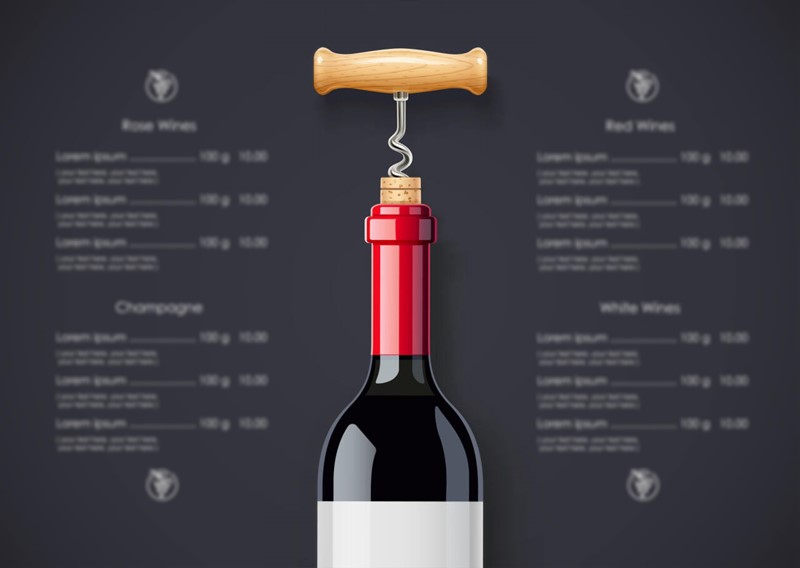Crafting an unforgettable wine list
The essential wines for any restaurant list and how to elevate your offerings

Crafting a compelling wine list for your restaurant is akin to painting a masterpiece where each stroke, or in this case, each selection, contributes to an overarching experience that can elevate dining to an art form. It's a delicate balance of familiar favorites and daring discoveries, curated to complement your menu and enchant your guests. In this friendly guide, we'll navigate through the essentials of building an unforgettable wine list, spotlight wines that should anchor your offerings, explore additions for more exclusive venues, and unlock strategies to stand out in the competitive culinary landscape. And, of course, we'll delve into why the role of the sommelier is pivotal in this entire orchestration.
The Foundation of Your Wine List
At the heart of every great wine list are the classics - wines that serve as the backbone, appealing to a wide range of palates and occasions. These are the varieties that, regardless of trends, remain perennial favorites:
- Chardonnay: This versatile white wine, ranging from buttery and oak-aged to crisp and mineral, is a must. It pairs beautifully with dishes from seafood to creamy sauces.
- Sauvignon Blanc: Known for its refreshing acidity and grassy, citrus notes, it's perfect for light appetizers and salads.
- Cabernet Sauvignon: A robust red with dark fruit flavors and a backbone of tannins, ideal for red meat dishes.
- Pinot Noir: A red wine that ranges from light to medium body, offering fruit-forward flavors of cherries and berries. It's versatile enough to match with everything from fish to pork.
- Merlot: With its softer tannins and plum and black cherry notes, Merlot is a crowd-pleaser that pairs well with a variety of foods.
Elevating Your Wine List for the Exclusive Restaurant
For establishments aiming to provide a more exclusive experience, your wine list should reflect rarity, craftsmanship, and a narrative that captivates your guests. Consider including:
- Biodynamic and Organic Wines: Showcase your commitment to sustainability and quality by featuring wines that tell a story of meticulous vineyard stewardship and innovative winemaking practices.
- Small-Batch and Boutique Wineries: Offer a selection from producers that prioritize quality over quantity, often yielding unique and memorable wines.
- Rare Vintages and Limited Editions: Distinguish your list with wines that enthusiasts would be thrilled to find, providing an exclusive draw for collectors and aficionados.
- Local Gems: Depending on your location, spotlighting regional wines can offer guests a taste of the local terroir, supporting nearby vineyards and offering a unique, place-specific experience.
Standing Out from the Competition
To differentiate your restaurant in a sea of dining options, your wine list should be as thoughtfully considered as your menu. Here are key strategies:
- Curate with a Theme: Whether it's a focus on a specific region, grape variety, or winemaking technique, a themed wine list can provide a cohesive and educational experience for guests.
- Seasonal Rotations: Align your wine selections with the seasons, just as you might with your food menu. This approach keeps your offerings fresh and aligned with the ingredients and dishes being served.
- Staff Education: Investing in wine education for your staff ensures that every team member can confidently discuss the wine list, offering recommendations and insights that enhance the guest experience.
The Sommelier: Your Secret Weapon

Perhaps the most crucial element in elevating your wine program is the sommelier. This wine expert does more than manage your wine inventory; they are the ambassadors of your wine philosophy, guiding guests through the list with stories and suggestions that turn a meal into a memorable journey. A great sommelier has the ability to:
- Tailor Recommendations: With a deep understanding of the menu and the wine list, the sommelier can make personalized recommendations that perfectly complement each diner's meal.
- Educate and Entertain: A sommelier who shares knowledge and anecdotes about the wines being served can transform dining into an immersive experience.
- Build Relationships: Regular guests will appreciate the personal touch a sommelier brings, fostering loyalty and turning occasional diners into regulars.
In summary, a thoughtfully curated wine list, enriched with both classic and exclusive selections, seasoned with creativity, and delivered with knowledgeable enthusiasm by a skilled sommelier, can set your restaurant apart. It's not just about the wines you choose; it's about creating an atmosphere that celebrates the joy of discovery, the pleasure of good company, and the art of dining well.
Founded in 2007, Vinetur® is a registered trademark of VGSC S.L. with a long history in the wine industry.
VGSC, S.L. with VAT number B70255591 is a spanish company legally registered in the Commercial Register of the city of Santiago de Compostela, with registration number: Bulletin 181, Reference 356049 in Volume 13, Page 107, Section 6, Sheet 45028, Entry 2.
Email: [email protected]
Headquarters and offices located in Vilagarcia de Arousa, Spain.